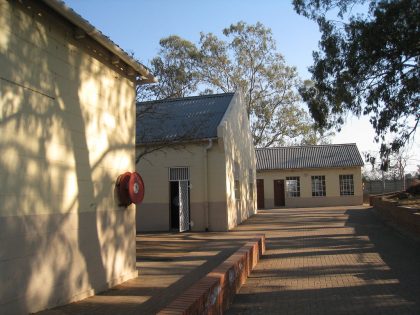
Impounded sandwiches
One major historical function of the police in South Africa remains: to manage the poor.

One major historical function of the police in South Africa remains: to manage the poor.

How Julius Malema's Economic Freedom Fighters drive political conversations in South Africa.

Recent restrictions on refugees—and the limited protests against them—reflect the degree to which many South Africans see “xenophobia” as legitimate hate.

In South Africa, the political class use foreign nationals as scapegoats to obfuscate their role in reproducing inequality. But immigrants are part of the excluded.

What might the fascination in displaying and seeing the body of “the criminal” tell us about South Africa today?

COSATU, South Africa's largest trade union federation, has a plan to simultaneously tackle climate change and unemployment.

Remembering Adelaide Tantsi Dube’s poem 'Africa: My Native Land,' first published in 1913, the same year the white government stripped black South Africans of their land.

Homage to Santu Mofokeng, photographer of quotidian black life in South Africa.

Nearly four decades later, Linda Ronstadt’s arguments against the cultural boycott - repeated in a new film - ring hollow.

For this group, politics is often framed as a series of never-ending discussions about social justice: The experience from South Africa.

The question is not how, or where, or when neoliberalism will end, but if it will, and what the left will do about it. The case of South Africa is instructive.

Urdang reflects her long friendship with fellow political exile Jennifer Davis, the anti-apartheid activist and changemaker.

A resurgent conspiracy theory that Nelson Mandela died in 1985 reveals the growing hopelessness in South Africa that rampant inequality is irreversible.

South Africa introduces a new law which allows traditional leaders along with third parties to decide for communities, without their consent.

Turok, who died at 92, was committed to fighting for the ideals of the left in South Africa. It is worth reviewing what his contribution to these ideals were in the final chapter of his life.

Nthikeng Mohlele’s novel Small Things (2013) provides a rejoinder to J. M. Coetzee’s Disgrace (1999), depicting a black man’s perspective on the failures of South Africa’s transition.

One of the few books about photography to come out of the continent and where the majority of contributors are African and work on the continent.

During Christmas 1980, Hugh Masekela and Miriam Makeba performed at a concert in Lesotho that deeply challenged and disturbed South Africa’s apartheid regime. The record of that concert is being reissued.

No child should choose between having food, love, and a roof over their head or being their full self.

Historian Peter Cole’s book on dockworkers in apartheid South Africa and San Francisco gets beyond slogans to vital historical truths.